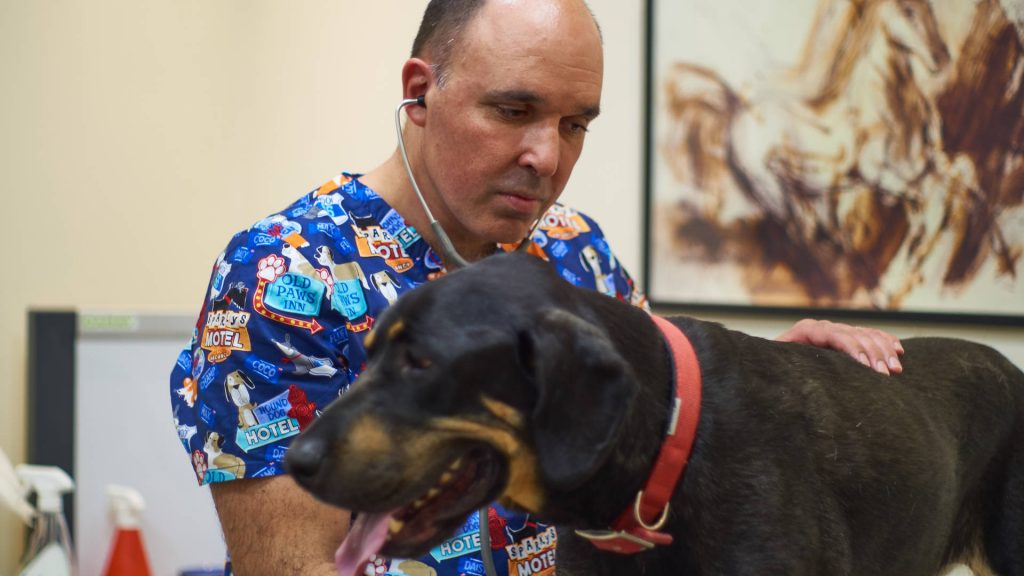Any marked change in your dog’s habits, appearance, and behavior can be a sign of a serious health problem and you should pay special attention to it. You know your dog better than anyone, so you definitely know when something is wrong. Cats on the other hand are experts at hiding illness. They tend to hide pain and other health issues. By the time you actually notice something is wrong with your cat, it might have been going on for a longer amount of time than you think.
The following are the most common ways in which your dogs and cats tell you they’re sick:
- Vomiting
- Diarrhea
- Appetite change associated with weight loss or gain
- Lethargy
- Excessive drinking
- Excessive or reduced urination
- Changes in breathing like wheezing, excessive panting and labored breathing
- Coughing, sneezing or discharge from nose
- Discharge from eyes or dry, red eyes
- Ear debris or discharge
- Scratching, skin irritation or hair loss
- Increased vocalization or growling
- Sleeping more than normal, or other behavior or attitude changes
- Change in activity level, lack of interest in doing things they once did
- Limping or difficulty in rising or climbing stairs
- Swelling in any area of the body
- Bad breath or excessive drooling
If you see your pet showing symptoms of being ill, you should contact us immediately. Treatment is always easier when it starts early, before the disease progresses.

How to prevent illness in your dog or cat
Signs of disease are not always obvious. However, early detection might mean we can take action before the illness becomes serious. For this reason, we think that annual check-ups and preventive care testing are essential for your dog or cat. Senior pets may need check-ups twice per year and routine lab work.
Preventive care testing can include the following, depending on your pet individual needs:
- A complete blood count to rule out any blood-related health issues
- Biochemistry and electrolyte tests to evaluate how your pet’s internal organs work, check for the presence of dehydration or any electrolyte imbalance
- Tests to identify if your pet may have tick-borne (like ehrlichiosis or leishmaniasis) or other infectious diseases (like Feline panleucopenia)
- Urine analyses to check how well your pet’s kidneys work, identify urinary tract infection and detect metabolic diseases, like diabetes
- A thyroid test to rule out your pet is hypothyroid or hyperthyroid
- An electrocardiogram to screen for an abnormal heart rhythm, which is an indicator of heart disease

